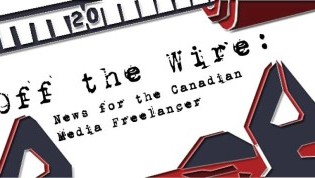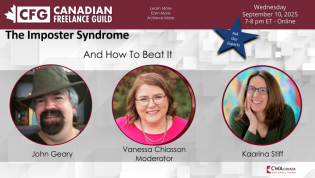Imagine if, to sell your writing or other media work, you had to give up all re-sale rights, knowing full well that the person you were selling it to would earn far more than you had because of their access to a wider market. If what you're producing is one-of-a-kind, nearly impossible to re-create, and took years of work, it's a maddening prospect.
To make any money from their work, visual artists have to release it to the market. After that first sale, though, Canadian artists don't see a penny more of profit. Works that originally sold for hundreds of dollars can fetch thousands once they reach auction houses, but the artist can only watch and hope they can sell new pieces for more.
It isn't this way everywhere. As this CBC story notes, 59 countries have legislation that guarantees artists receive a portion of profits every time their works are re-sold. Now, as the government tries to move Bill C-11—the Copyright Modernization Act—through the House of Commons, a group that represents the interests of visual artists, is asking them to tack on similar legislation. CARFAC wants Canadian artists to get a five per cent royalty each time their work is sold.
CARFAC Ontario vice-president Barbara Gilbert gave CBC News one example of Canadian artists' frustration: "There's an Inuit artist who sold a work to a dealer for about $600 and it was recently sold at auction for well over $250,000 [...] Did he see any of it? Nope."
For media freelancers, the visual artists' situation should sound familiar. Freelance contracts are getting tougher and demanding more and more from content creators, asking them to give up their right to re-sell the work or effectively doing the same by claiming the right to re-sell the work to third parties themselves.
In both cases, it seems visual artists and media freelancers are learning that banding together might be the only way to maintain control over their rights and secure their slice of the profits from their work.
Search
Recent Posts





